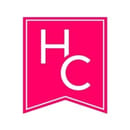How would you feel if you weren’t allowed to go to school?
Try to visualize yourself being yanked out of school when you’re 11 years old.
Can you imagine never having learned how to read a book? Or what about learning how to write?
Almost 70 million girls around the world are not in school right now. On top of that, millions more are fighting to keep their place. There are currently an estimated 781 million people around the world over the age of 15 that are illiterate; of this number, around two-thirds of them are women.
Still Having a hard time trying to visualize?
According to the Wells College website, there are approximately 500 students enrolled. That means that for every 1 student on our campus, there are around 140,000 girls without access to an education.
Let that sink in.
For Women’s History Month this year, I wanted to bring attention to disturbing statistics that so many young girls have to live through. One woman we’ve all seen on the news and heard the story of is Malala Yousafzai. In 2008 when the Taliban took control over her town and ultimately declared that girls could no longer go to school, Malala was forced to say goodbye to her education. Malala was only 11 years old.
After a brutal attack from a masked gunman in response to speaking out publicly for a girl’s right to an education, Malala was shot in the head. Although Malala’s story made headlines nation-wide, there are stories just like Malala’s that don’t get the same attention.
Girls all over the world every single day are beaten and killed for speaking out about the need for education. Instead of being heard, these girls are being forced into child marriage, forced to have a child of her own, or even could be subjected to genital mutilation.
Girl’s voices need to be heard.
-
An extra year of secondary school for girls can increase their future earnings by 10-20%
-
If all mothers completed primary education, maternal deaths would be reduced by two-thirds, saving 98,000 lives
-
If all women had a secondary education, 12 million children would be saved from stunting from malnutrition
-
Almost 60% fewer girls would become pregnant under 17 years in sub-Saharan Africa and South and West Asia if they all had secondary education.
-
If all girls had a secondary education, there would be two-thirds fewer child marriages
I’m aware that it’s hard for some people to imagine these experiences playing out in real life. However, that can’t stop the motivation to keep pushing for an equal, safe, free education for every single girl on this planet. The ground basis that we have to start with is by recognizing the true connection that we have to women everywhere. Think about the girls who wish they could be getting the education that you are. Instead, they’re working endless hours in horrible conditions, raising children barely younger than they are, and being married off. These girls need you on the battlefront, at least trying to figure out how to effectively participate.
Your voice is the most powerful tool at your disposal – use it to call attention to this global crisis.
What else can you do?
Donate.
Invest in these girls’ education. The Malala Fund helps girls around the world go to school by allocating funding for the ability to have safe spaces for girls in Northern Nigeria, to training young Pakistani women as activists, to providing STEM education to Syrian refugees.
This fund helps vulnerable girls to stay in school and receive a high school diploma and then go on to obtain vocational training or a college degree. The Girl Fund also helps girls who need a sanctuary from child marriage or child trafficking, and it provides access to health and education for adolescent girls.
Female education isn’t only relevant and crucial in developed countries like the USA. We can’t forget about the girls who aren’t fortunate enough to receive one as easily as we are. Women’s History Month isn’t just about women who are doing amazing things. It’s about the women who could be, and the women who will be.



